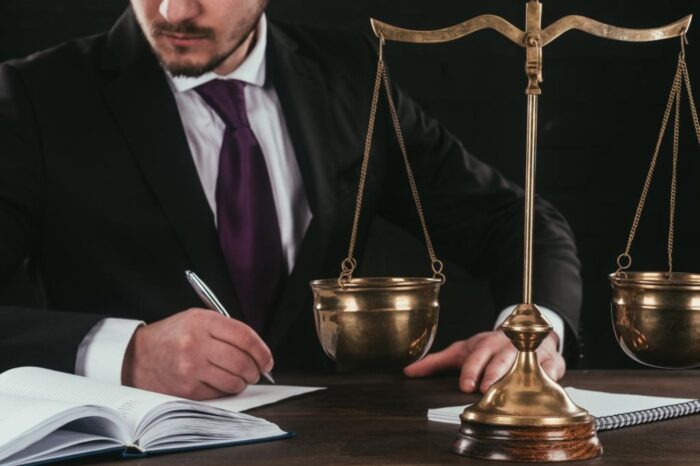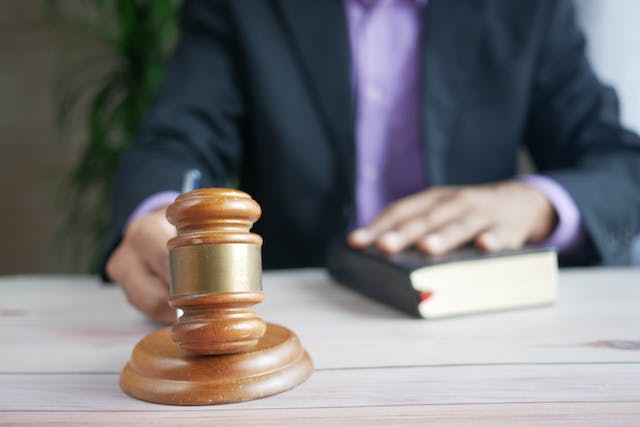Free legal aid is a critical lifeline for those unable to afford legal representation. It ensures that everyone has access to justice, regardless of their financial status. But who exactly qualifies for this assistance, and who does not?
This article will provide an in-depth look into the criteria for eligibility and the process of applying for free legal aid. Understand who qualifies for free legal aid and who doesn't, the eligibility criteria, the application process, and alternatives for those who don't qualify.
Eligibility Criteria For Free Legal Aid
Free legal aid programs typically use a set of guidelines to determine who is eligible for their services. While these guidelines may vary from one jurisdiction to another, there are general rules that apply in most cases.
Income Threshold
The most fundamental criterion for qualifying for free legal aid is income level. Legal aid organizations often use the federal poverty guidelines as a basis for determining eligibility. Applicants whose income falls below a specific percentage of the federal poverty level—often 125% but sometimes as high as 200%—may qualify for free legal aid.
Nature Of Legal Issue
The type of legal issue involved also plays a significant role in determining eligibility. Most legal aid organizations focus on civil legal issues that impact a person's basic needs, such as housing, employment, and domestic violence issues. Therefore, individuals facing criminal charges often do not qualify for free legal aid.
Residency
Generally, applicants must also be residents of the state or county in which the legal aid organization operates. This requirement ensures that resources are allocated to those most in need within a specific geographic area.
Exceptions To The Rules
While these are the general criteria, there are exceptions. Certain groups, such as seniors, veterans, and individuals with disabilities, may qualify for free legal aid regardless of their income level. Some legal aid organizations also provide services to individuals who exceed the income threshold in cases of extreme hardship or when the legal issue is of significant public interest.
Applying For Free Legal Aid
The application process for free legal aid typically involves a thorough assessment of the applicant's financial situation and legal issue. Applicants must provide proof of income, residency, and details about their legal issue. It is crucial to provide accurate and complete information during this process to increase the chances of approval.
When You Don't Qualify For Free Legal Aid
If you do not qualify for free legal aid, do not despair. There are other options available. Many law schools have legal clinics where law students provide free legal advice under the supervision of experienced attorneys. Additionally, some private attorneys offer pro bono services or sliding scale fees based on income. Bar associations often have referral services that can connect individuals with these resources.
Impact Of Legal Aid On Society
Access to free legal aid has a profound impact on society. It levels the playing field, allowing individuals from all walks of life to assert their rights effectively. It ensures that individuals, irrespective of their financial status, can seek justice and get a fair hearing. This principle is at the heart of any democratic society, affirming that justice is not just for the rich and powerful, but for all citizens.
Challenges In Accessing Free Legal Aid
Despite its importance, many individuals face significant challenges in accessing free legal aid. The demand for these services often exceeds the supply, leading to long wait times and limited availability. Many legal aid organizations are underfunded and understaffed, making it difficult to meet the needs of all who require their services. It's crucial to continue advocating for more resources to ensure everyone who needs free legal aid can access it.
Future of Free Legal Aid
Looking ahead, the future of free legal aid depends on sustained funding and increased awareness about these services. Technology can also play a role, with online platforms potentially offering a way to provide legal advice to a wider audience. While challenges exist, the commitment to providing legal aid remains strong, ensuring that this vital service continues to be available for those who need it most.
Frequently Asked Questions
To provide a better understanding of who is not eligible for free legal aid, we have answered some of the questions people most commonly ask.
What is the federal poverty level used to determine eligibility for free legal aid?
The federal poverty level is a measure of income issued every year by the Department of Health and Human Services. The numbers are used as a guideline for many federal programs, including legal aid services. The level varies depending on the number of persons in a household.
Can I get free legal aid for any legal issue?
No, free legal aid typically covers civil legal issues that impact basic needs, such as housing, employment, and family law. It usually does not cover criminal charges. However, public defenders are available for individuals who cannot afford an attorney in criminal cases.
What should I do if I do not qualify for free legal aid?
There are other options available if you do not qualify for free legal aid. You can reach out to law schools that operate legal clinics or private attorneys who offer pro bono services. Bar associations can also provide referrals to low-cost legal services.
Understanding Who Is Not Eligible For Free Legal Aid
Free legal aid plays a vital role in ensuring equal access to justice. Understanding the eligibility criteria and application process is the first step toward accessing this resource. While not everyone will qualify, there are other options available for those who do not meet the criteria. The key is to explore all available resources and not lose hope.
Learn more about how to navigate the complex legal world by visiting Gov Relations. Explore our guides and resources to learn more about the legal course of action when dealing with an aggressive bike rider.







